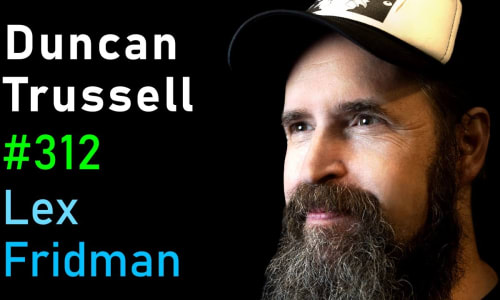See all Lex Fridman transcripts on Youtube

Duncan Trussell: Comedy, Sentient Robots, Suffering, Love & Burning Man | Lex Fridman Podcast #312
3 hours 19 minutes 51 seconds
🇬🇧 English

Omnivision Solutions Ltd
- Getting Started
- Create Transcript
- Pricing
- FAQs
- Recent Transcriptions
- Roadmap